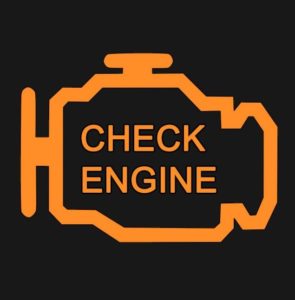The Check Engine Light Is On: Why Ignoring It Could Cost You
When your check engine light is on, it's telling you there's a problem with your vehicle.

Imagine cruising down the road, enjoying the open air, when suddenly your car's dashboard lights up like a Christmas tree, and there it is—the dreaded check engine light. It's a familiar sight for many drivers, yet all too often, it's shrugged off as a minor inconvenience.
However, ignoring the check engine light can have significant consequences, both for your vehicle's health and your wallet. In this article, we'll explore the importance of addressing the check engine light promptly and the potential risks of neglecting it.
The Check Engine Light: A Silent Messenger
The check engine light serves as an early warning system, alerting drivers to potential problems within the vehicle's engine or emissions system. It is connected to the onboard diagnostics system, which continuously monitors various sensors and components for irregularities. When an issue is detected, the check engine light illuminates, urging the driver to take action.
Preventing Further Damage
While the check engine light may sometimes indicate a minor issue, it can also be an early indication of a more significant problem lurking beneath the surface. Ignoring it could lead to severe engine damage or even a complete breakdown. By promptly addressing the check engine light, you can prevent further deterioration of crucial components, saving you from costly repairs down the line.
Ensuring Safety
Your vehicle's performance and safety can be compromised when the check engine light is ignored. The issue triggering the light might affect critical systems such as the engine, transmission, or braking system. For instance, a faulty oxygen sensor may reduce fuel efficiency and increase harmful emissions, potentially affecting the environment. Resolving these issues promptly ensures the safety of both you and other drivers on the road.
Maintaining Fuel Efficiency
One common cause of the check engine light is a malfunctioning sensor that affects fuel mixture, ignition timing or airflow. These issues can lead to decreased fuel efficiency, meaning you'll spend more money at the gas pump. By addressing the check engine light promptly, you can restore optimal performance and save on fuel costs in the long run.
Diagnosing Hidden Problems
The check engine light acts as an early diagnostic tool, providing valuable insights into the health of your vehicle. Even if the symptoms seem minor or negligible, it's crucial to have a professional technician perform a thorough diagnostic check. They can identify and address underlying issues that may not be immediately apparent, preventing potential breakdowns or expensive repairs in the future.
The Take-Away From This Article...
The check engine light should never be taken lightly. Ignoring it can lead to more significant problems, compromising both your vehicle's performance and your safety. By promptly addressing the issue, you can prevent further damage, maintain fuel efficiency, and ensure a smooth and reliable driving experience.
Don't overlook the silent messenger on your dashboard—heed the warning and let a qualified professional diagnose and repair the problem. Your car—and your wallet—will thank you in the long run.
